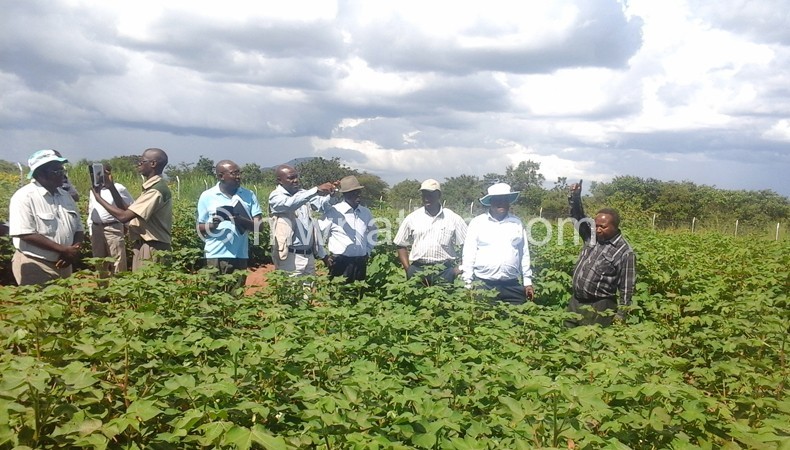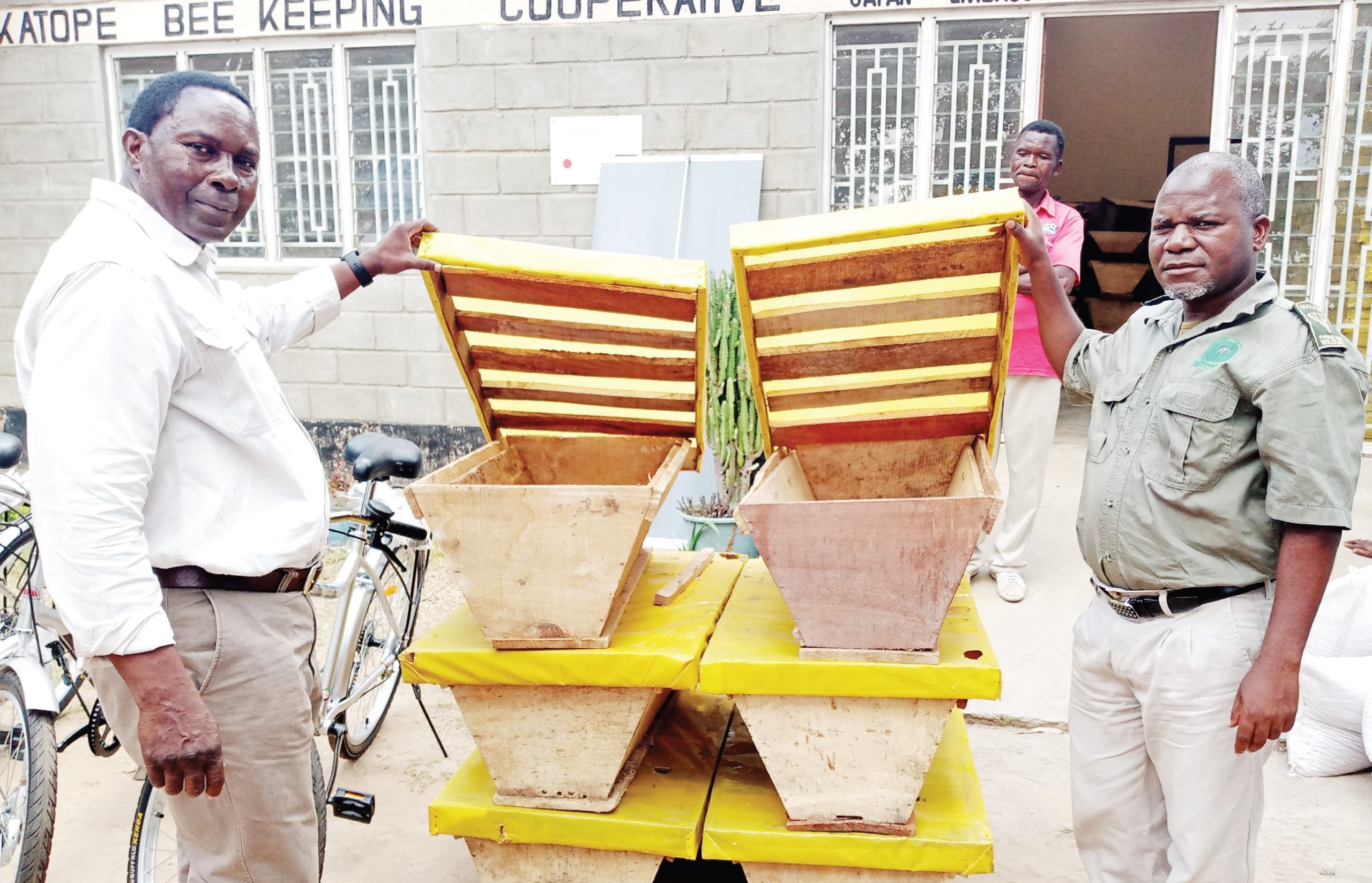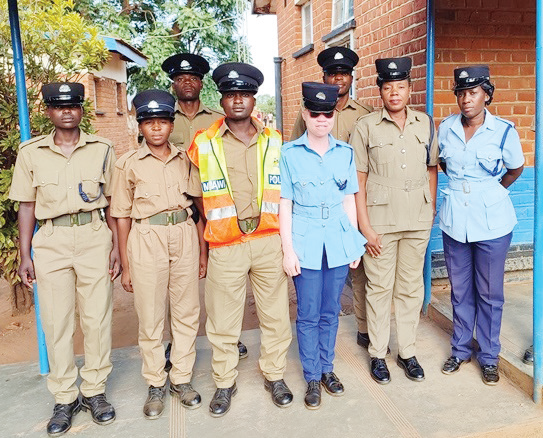BT Cotton release: For how long?
As the debate on GMOs and Malawi’s agriculture continues, EPHRAIM NYONDO looks at the ground covered on BT Cotton confined trials and what is remaining to have the variety released to farmers.
Malawi’s first experience with genetically modified organisms (GMOs) was between the years 2000 and 2001. Hunger had struck the nation.
Unfortunately, on its own, government did not have enough in its strategic grain reserves to feed the millions that had no food. It had to ask for external assistance.
The international community responded quickly with the donation of foodstuffs, including GM maize. Unlike Zambia which, like Malawi, was experiencing acute hunger, the Malawi government accepted the GM maize.
Since then, Malawi never had another experience of GMOs, until the commissioning of confined trials for BT Cotton in 2011.
Researchers argue that of all major cash crops grown in Malawi, cotton, the country’s fourth forex earner, has the highest insect pest load. Hence, insect pests are the largest single factor limiting cotton production in Malawi. Mostly, grown varieties such as MON 15985 and MON 15985, experts advance, fail to withstand the pest that are prevalent in Malawi including bollworms.
Since cotton is attacked by a large number and variety of insect pests; more insecticides are sprayed on cotton in Malawi than any other crop. Insecticide sprays are not only expensive but are also serious air and soil pollutants. Thus, there is a real need to introduce cotton varieties which are resistant to these pests.
In Malawi the most serious insect pests of cotton are Lepidopterans (African bollworm, spiny bollworm, pink boll worm, red bollworm and cotton leaf roller), heteropterans (cotton stainer bugs, cotton seed bug, cotton helopltis, cottonlygus), homopterans (cotton jassids, cotton aphids) and various other insect pests (red spider mite, termites, elegant grasshopper, cotton psillidetc).
To achieve high cotton yields, the crop should be protected from insect pests through application of recommended insecticides at correct rates following good crop hygiene practices.
This is where Bt Cotton comes in.
According to Chancellor College geneticist Dr DalitsoKafumbata, Bt Cotton is one seed variety in which a gene from a soil bacterium has been inserted.
“The bacteria, Bacillus thuringiensis (BT), naturally produces a toxin that kills stalk borers. The gene responsible for this toxin was literally inserted into the cotton seed so that the seed also produces the toxic product and protects itself. There is no loss of vigour with GM seeds as the new gene becomes part of the organism forever,” he said.
The variety, as of today, is with government waiting to be released to the farmers having undergone two successful confined trials at Lilongwe University of Agriculture and Natural Resources (Luanar).
In fact, an application of its release was made last year by an international seed company, Monsanto. However, Monsanto’s application has drawn mixed feelings from the public.
Various Civil Society Organisations (CSOs) have made applications to government not to release the variety.
For instance, in their submission on the application for general release Bt Cotton, the Centre for Environmental Policy and Advocacy (Cepa), observed that the application of the general release does not use data from Malawi field trials as required by the Biosafety Act and the Regulations made there under.
“In addition, the application uses the principle of substantial equivalence which does not exist under Malawi policy and legislation on Biosafety and biotechnology. The Biosafety (Management of Genetically Modified Organisms) Regulations 2007 also require that in conducting risk assessment, use should be made of the precautionary principle. The application, however, has not addressed this principle,” reads the statement.
Hence, Cepa recommends that the application is incomplete in that does not use data from Malawi field trials and does not refer to any reports from monitoring the trials.
Despite this, cotton farmers in the country have been calling for the release of the variety.
Board chairperson of the Cotton Farmers Association of Malawi (Cfarm) David Rice told Weekend Nation recently that they expect government to release the variety as soon as possible because they want to benefit from its fortunes.
“This year has been the worst. Most farmers have been hit by a pest called mealy bug and yields have greatly declined. We need this variety right now because we know what it is capable of,” he said.
However, Biosafety registrar, Carol Theka, told Weekend Nation that the National Biosafety Regulatory Committee (NBRC) is the legal entity that has the responsibility for assessing bio-safety aspects of biotechnologies such as genetic modification and making recommendations to the minister in that regard.
At the moment, she added, the secretariat has just received annual reports for the last growing season.
“These reports, as well as comments from the public on general release, will form part of the documents that will be evaluated by the committee as it is evaluating the application.
“The committee makes a recommendation to the minister on its decision and if a licence is issued then the applicant is required to go to the Ministry of Agriculture for further analysis, as this is an agricultural crop.
“The Ministry will, after its analysis in accordance with its legislation, make a decision on whether or not to release the crop to farmers,” said Theka.
She added that, as government, the biggest challenge they face is lack of understanding of the regulatory systems currently in place and the roles and responsibilities of different stakeholders.
“In order to overcome this, public awareness needs to be carried out to the various key players such as policy makers, researchers, CSOs and the general public,” she said.
Theka further said government would like the public to understand that the application for general release does not mean that Malawi will soon be selling GM crops.
“There are procedures under legislation that an applicant will have to comply with,” she noted.
She added that to sell or grow commercially a genetically modified plant variety in Malawi, an applicant must obtain licences from two institutions.
“The first license for general release of the genetically modified organism must be obtained under the provisions of the Biosafety Act 2002 and the Biosafety (Management of Genetically Modified Organisms) Regulations 2007.
“The other license is for plant varieties that contain the trait for commercial production. This has to be obtained from the Ministry of Agriculture.
“The time has come for Malawi to discuss such critical issues, considering that we live in a global society, and the decisions we take as a country have a bearing not only on the current generation, but the future as well. Such decisions should be carried out within the context of the laws and regulations in place,” she said.





